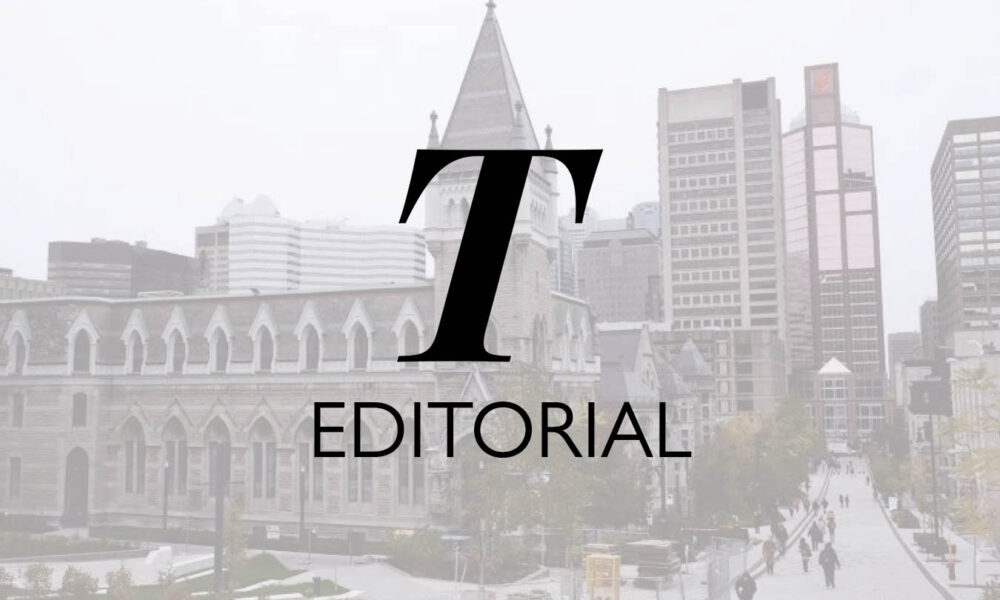On Jan. 28, the Coalition Avenir Quebec (CAQ) government announced its decision to pull the $100-million grant dedicated to funding the expansion of Dawson College. Under the leadership of former Premier Philippe Couillard, the Quebec Liberal Party initially approved the project in 2018 to address the college’s overcrowded campus. Plans included the construction of a new pavilion, which would have created an additional 11,000 square metres for health profession programs, such as the college’s nursing, radiation oncology, and physiotherapy programs. Defending the call to cancel the project, Premier François Legault argued that French CEGEPs should be given priority in infrastructure projects, citing his plans to increase their capacity by 22,000 seats by 2029. But the legitimacy of such a decision is questionable when it uses education as a political playground to further political ends, fuel the language divide, and deepen inequalities.
Many have accused the Minister of Higher Education, Danielle McCann, of discriminating against anglophone students by prioritizing French-speaking colleges in expansion plans. Although it is good public policy to invest in francophone colleges, the means of improving their situation do not have to come at the cost of pulling resources from anglophone ones. Teachers, parents, and students from the anglophone community believe that the decision to cancel Dawson’s expansion renders them second-class citizens who are on the backburner of government plans. Indeed, in cancelling the expansion, Dawson, one of the largest CEGEPs in Quebec, will not have the minimum equipment necessary to ensure their students’ success.
While the decision could be seen as an earnest part of the CAQ’s ongoing effort to protect French culture in Quebec, it necessarily infringes upon the opportunities of non-French speakers—and French speakers who wish to learn English. This misguided effort at preservation follows a marked pattern: Take, for example, the government’s choice to cap the number of places in English-speaking colleges until 2029 and pass secularizing bills like Bill 21 that seek to consolidate a monolithic Quebec identity.
In reality, however, fanning the flames of a language divide between francophones and anglophones is not the solution the CAQ thinks it is. For instance, several former Dawson students from the francophone community recently highlighted that attending an English-speaking college will not make them any less French. The barriers to attending English-speaking colleges could even risk encouraging the outward migration of French speakers who want to pursue higher education in English or sharpen their language skills for future multilingual careers. The CAQ must understand that providing resources to both French and English colleges does not pose a threat to Quebec society––the province will be better off if it equips students with the best tools for their futures.
A major critique of the decision to cancel Dawson’s expansion is the increasingly partisan nature of public policy, which often leaves disadvantaged youth falling through the cracks. The limited number of spots in English-speaking colleges heightens the risk of anglophone students underachieving if they are forced to attend French-speaking colleges where the language barrier makes it impossible to keep up. If the government fails to address this inequality in access to fair education, then social and economic disparities are bound to emerge between French and non-French speakers in the future.
The CAQ should not be using education as a pawn of partisan politics in public policy, especially under the toil of the pandemic. It must commit to providing better education for all students, rather positioning education funding as a zero-sum game. Instead of fearing English assimilation, the CAQ should look to encourage ties between both language communities to protect the French language. If the anglophone community feels more accommodated than ostracized, then the government will be able to garner broader support for the preservation of Franco-Quebec culture. Amid the pandemic, it is not the time to play games with the budget—Legault must be a unifying force against language divides and distribute funds where they are desperately needed, French and English alike.









